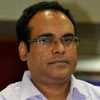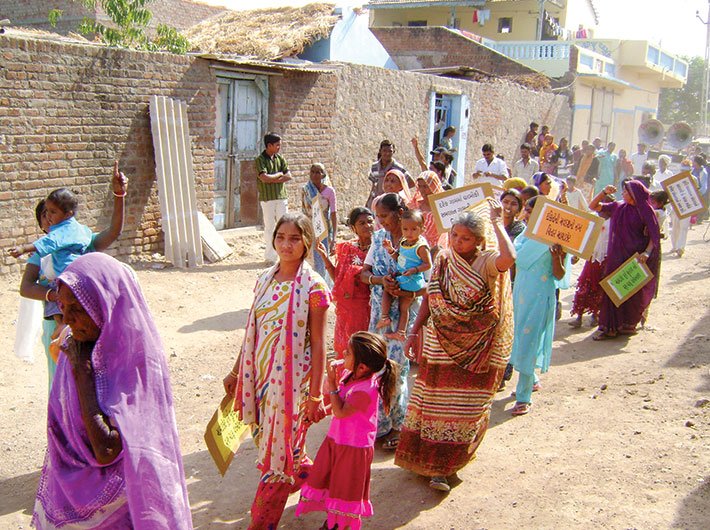Dalits’ refusal to perform menial work like lifting carcass and manual scavenging can trigger a long-awaited social revolution
How can people divided into thousands of castes be a nation?” This was a basic question raised by Dr BR Ambedkar during the freedom struggle. According to him, without annihilation of caste, freedom of India had no meaning.
As chairman of the drafting committee of the constituent assembly, Dr Ambedkar tried hard to make laws on atrocities against scheduled castes, but these were not enough to end the age-old discrimination, which has its roots in a culture presumably sanctioned by tradition and religious scriptures.
Thanks to constitutional provisions, people from the dalit and adivasi communities got the opportunity to receive education in premier institutions and achieve top positions and titles in various areas of work, at par with others. Yet, the attitude towards these communities never changed. Most of them still do not have any option but to continue with their ancestral jobs that are considered lowly by the society.
The idea to annihilate the caste system and make India a modern nation in real terms was also betrayed by the so-called followers of Ambedkar who won elections in several parts of the country. Since mainstream parties have no agenda to question the caste system, they too keep mum on the issue fearing it could affects their electoral prospects. However, when in the opposition these parties never hesitate to condemn incidents of dalit atrocities and stage dharnas.
Even the Bahujan Samaj Party, whose leaders portray Ambedkar as God, took a U-turn after coming to power. The party’s election symbol, elephant, became Ganesha, as BSP chief Mayawati enjoyed the chief minister’s post with overwhelming majority in legislature in Uttar Pradesh during 2007-12. Before this, she was elected thrice as the CM but only for short durations and had to head coalition governments. Despite becoming a political force to reckon with, instead of abolishing caste system, the party organised ‘caste conferences’ as part of its electoral strategy.
In 1936, Dr Ambedkar had proposed inter-caste marriages to eliminate caste, but today the matrimonial columns in newspapers of metropolitan cities show that most people are searching for partners from their own castes.
This shows that even today many Indians are not ready to live in a social setup where no caste would be expected to perform menial and derogatory jobs. A sweeper in a manhole, without a gas mask or protective gloves, has never pricked the conscience of a civilised society. Even religious leaders often praise their supposed sacrifice for the society but never appeal to them to leave such work.
Even prime minister Narendra Modi, in his book Karmayog, has expressed similar sentiments. He wrote about the Valmiki community (mostly engaged in cleaning roads, toilets and sewers), “I do not believe they have been doing this job just to sustain their livelihood. Had this been so, they would not have continued with this kind of job generation after generation... At some point of time, somebody must have got the enlightenment that it is their duty to work for the happiness of the entire society and the Gods; that they have to do this job bestowed upon them by Gods; and this job should continue as internal spiritual activity for centuries.”
Had Modi gone through the famous, undelivered speech by Ambedkar, ‘Annihilation of Caste’, he would have certainly got the answer to his question. Ambedkar wrote, “Why have there not been social revolutions in India is a question which has incessantly troubled me. There is only one answer, which I can give and it is that the lower classes of Hindus have been completely disabled for direct action on account of this wretched caste system of Chaturvarnya [four-caste system]. They could not bear arms and without arms they could not rebel. They were all ploughmen or rather condemned to be ploughmen and they were never allowed to convert their ploughshare into swords. They had no bayonets, and therefore everyone who chose could and did sit upon them. On account of the Chaturvarnya, they could receive no education. They could not think out or know the way to their salvation.”
However, history tells that every idea has its shelf-life and a small incident could become the turning point. The aftermath of the July 11 incident of Una town in Gujarat is quite significant. That day, seven dalit men were brutally beaten by a group of gau-rakshaks, or cow-protectors, for skinning a dead cow. The attackers also paraded four of the victims all the way to the police station. Amazingly, this horrible incident could not get media attention at that time. It was only when the video of the victims being attacked with sticks went viral that hue and cry started.
But what the dalits of Gujarat have now done is historic. They have refused to lift the carcasses, telling gau-rakshaks to take care of their ‘mothers’ themselves. Even though the dalits did not have support from any political leader or party, the impact of their action was so strong that it became a major factor for chief minister Anandiben Patel’s resignation. This, however, was not the end; hundreds of dalits and social activists started a march from Ahmedabad to Una, urging dalits to stop doing the ‘dirty’ jobs. During the 380 km march, the participants addressed several small and big gatherings in villages and towns. The message was simple – not to tolerate any atrocity and give up the ancestral work like disposing off dead animals. Thousands of young men and women took a pledge - “We the brothers and sisters of dalit community will stop skinning the dead animals from today. We will also not do manual scavenging and cleaning of sewers.”
The hierarchical caste system that places dalits at the bottom gives them the responsibility of carrying out several dirty works which no other community is ready to do. But this newly found non-cooperation by dalits can change the whole picture and as the state and society would have to think of alternatives.
This might also be the beginning of a social revolution in India. History could compare this ‘Una march’ with the Dandi March undertaken by Mahatma Gandhi in the same state. While the Dandi March was organised to break the salt law for India’s freedom, the Una march is meant to break the caste division for dalits’ freedom.
feedback@governancenow.com
The column appears in August 16-31, 2016 issue of Governance Now

